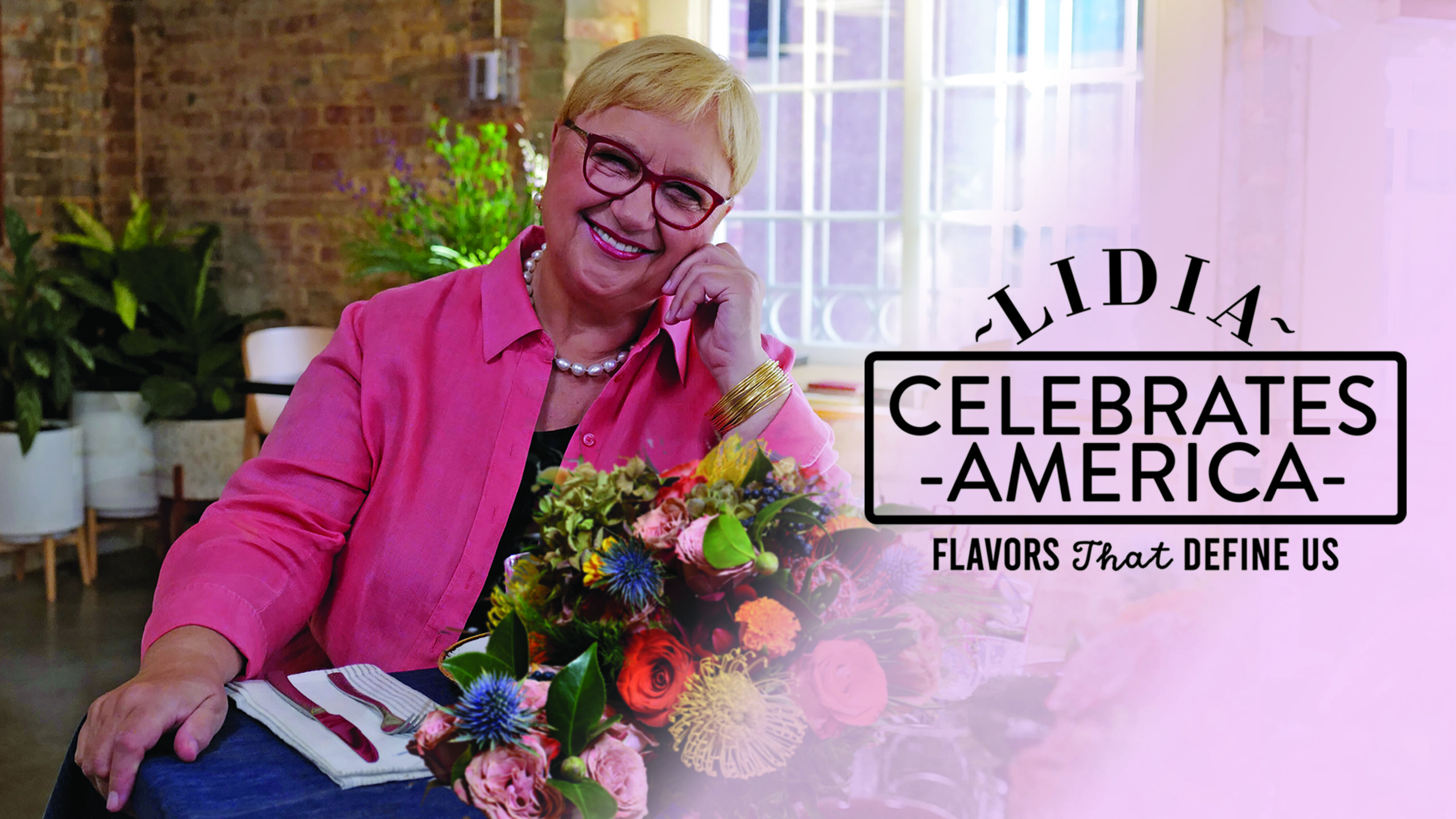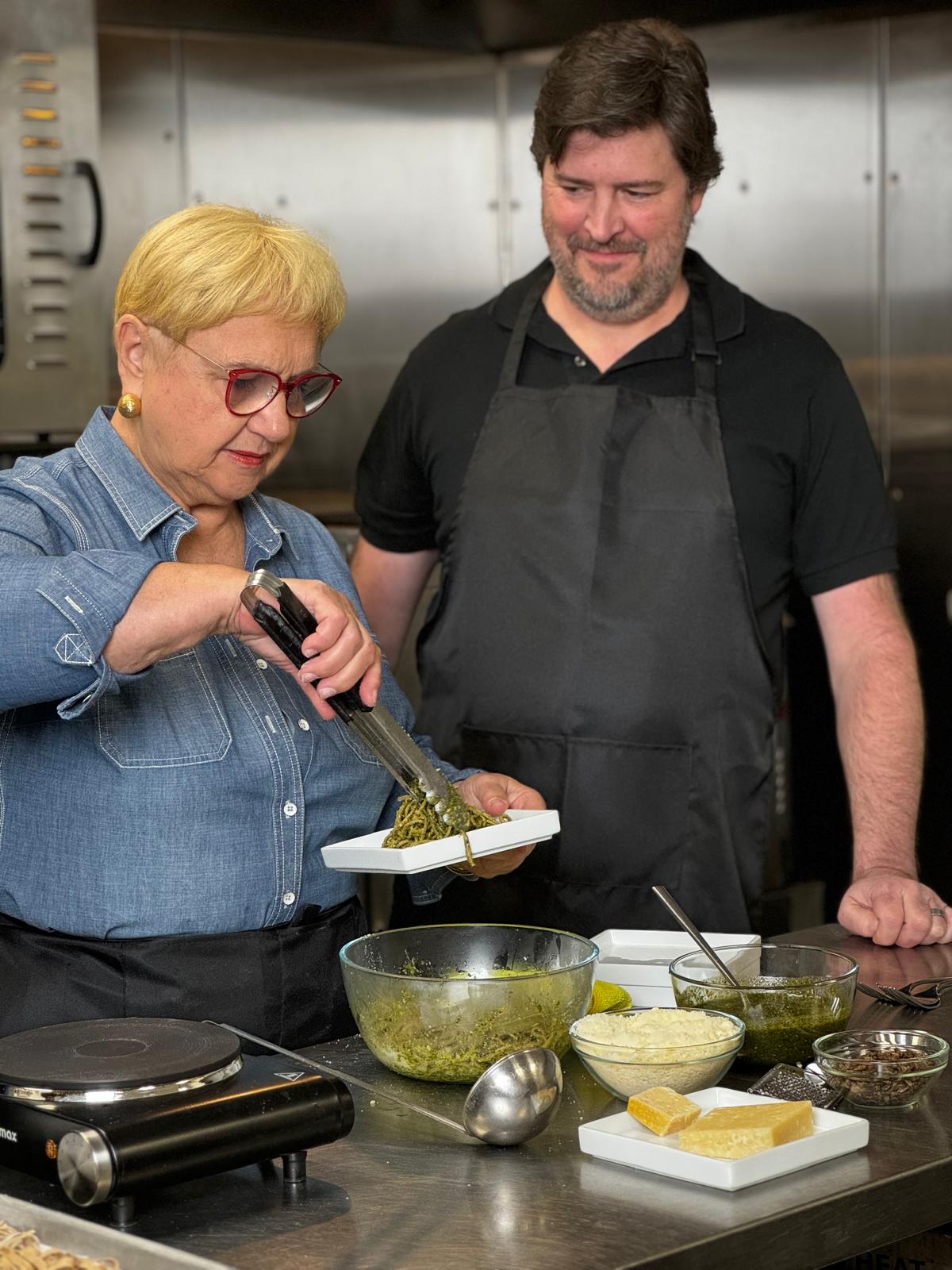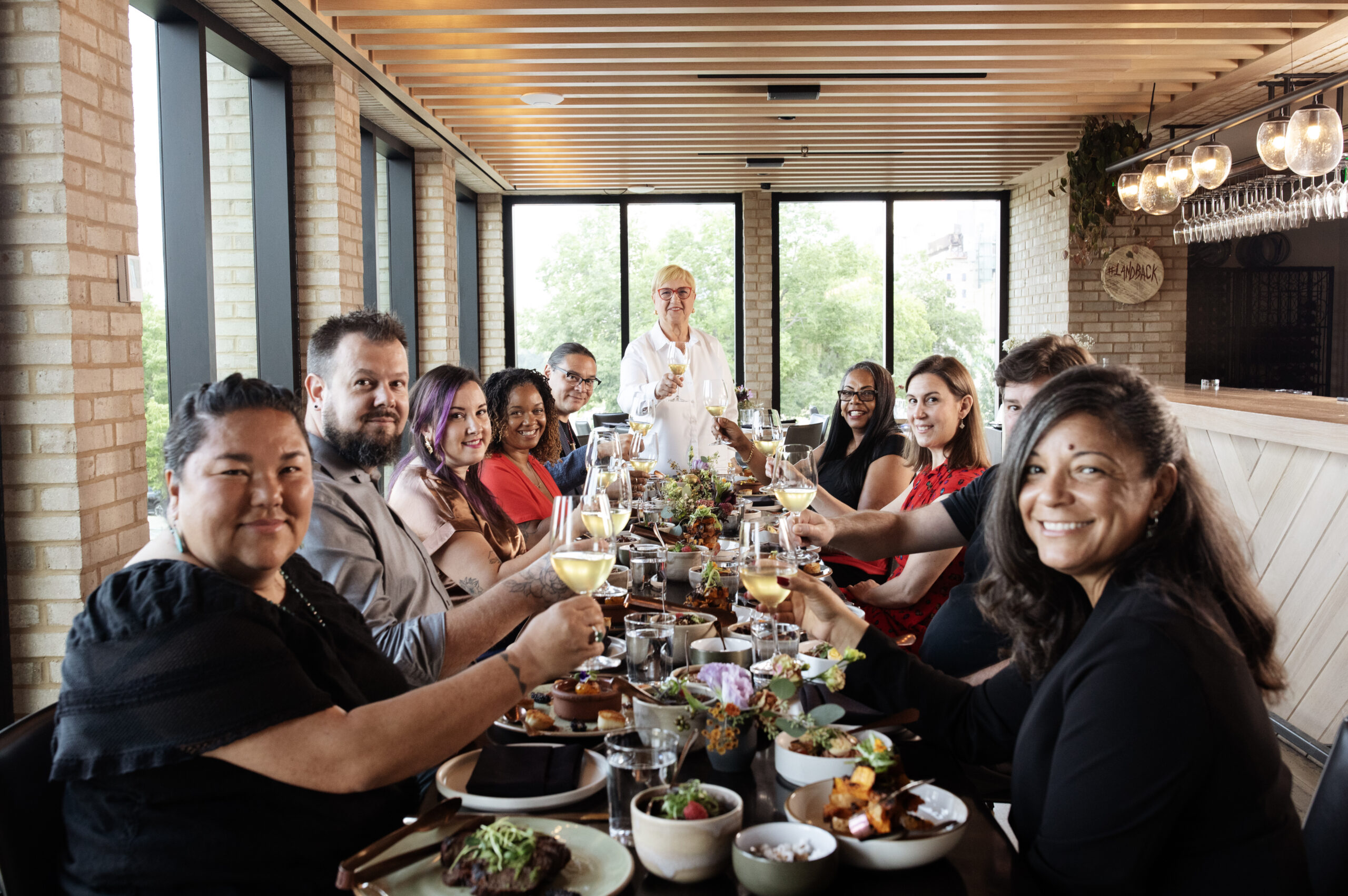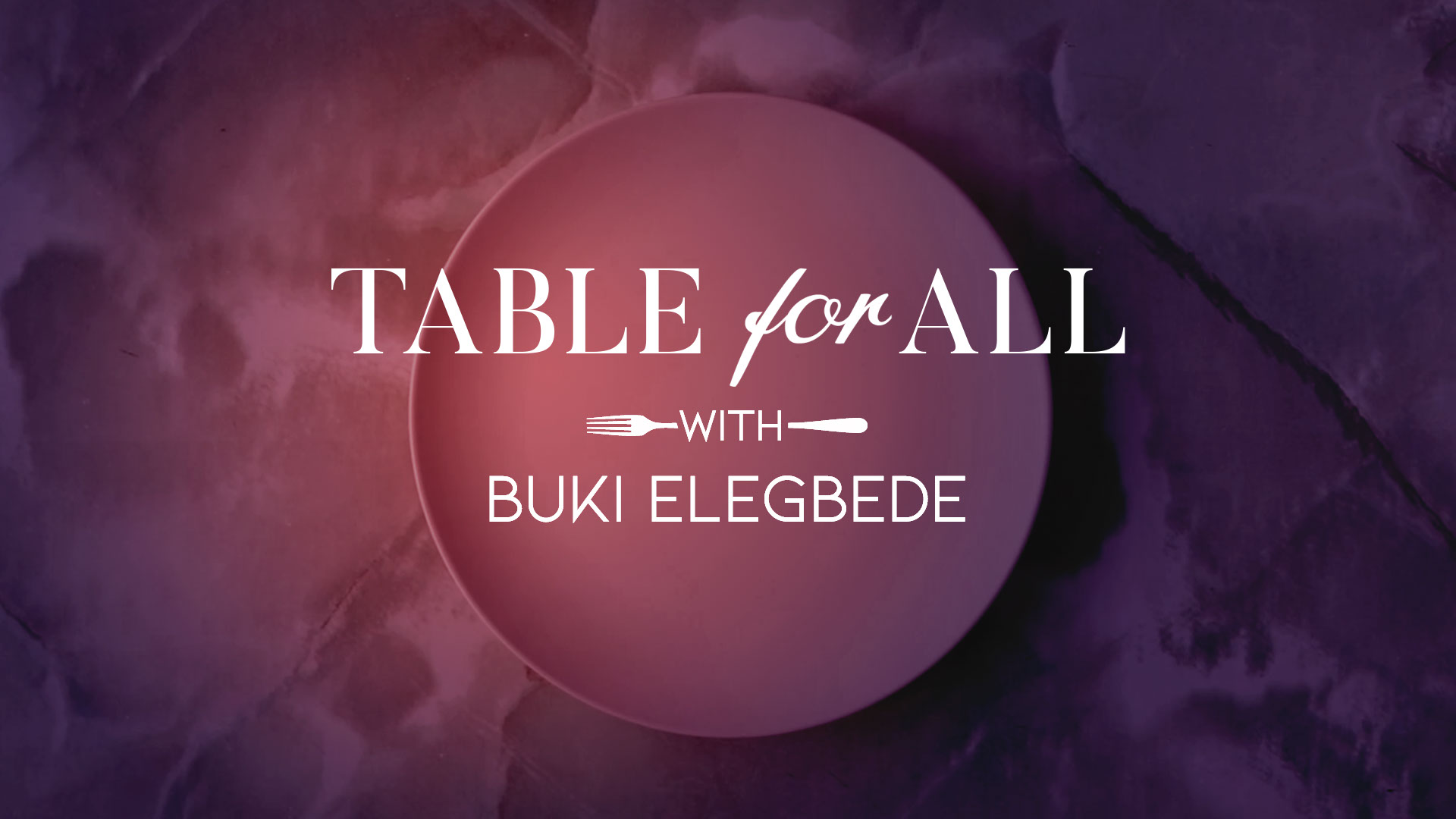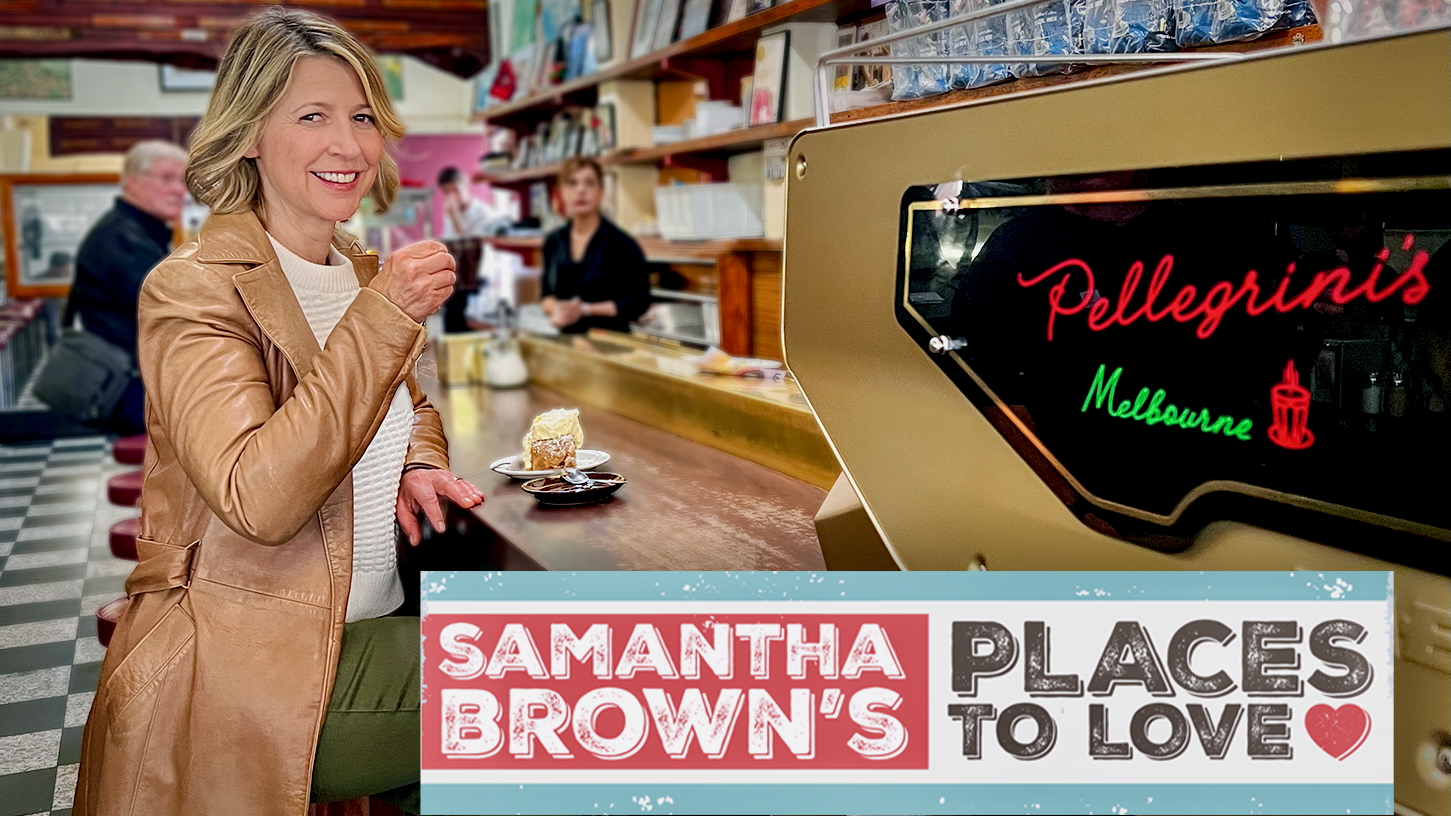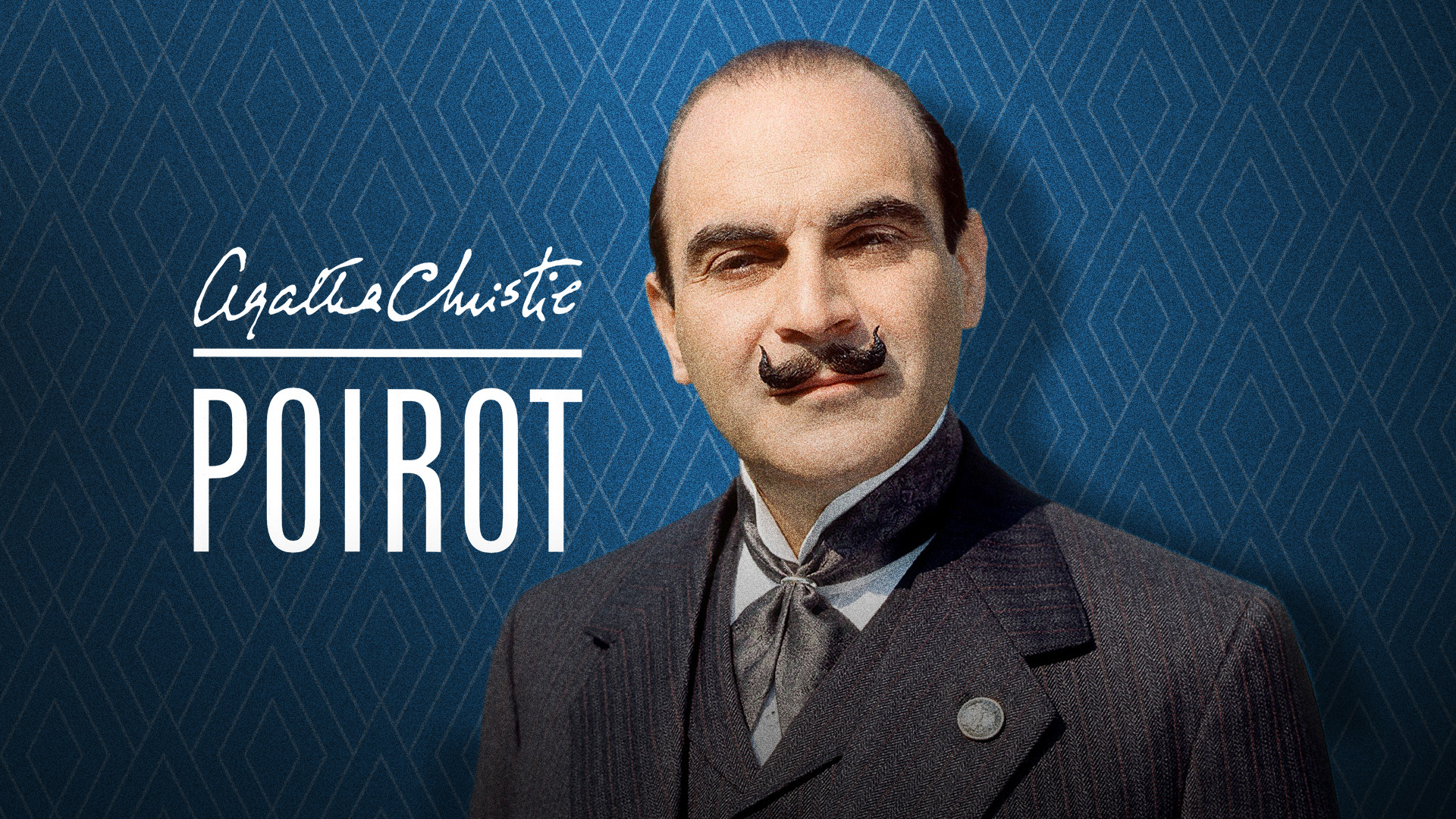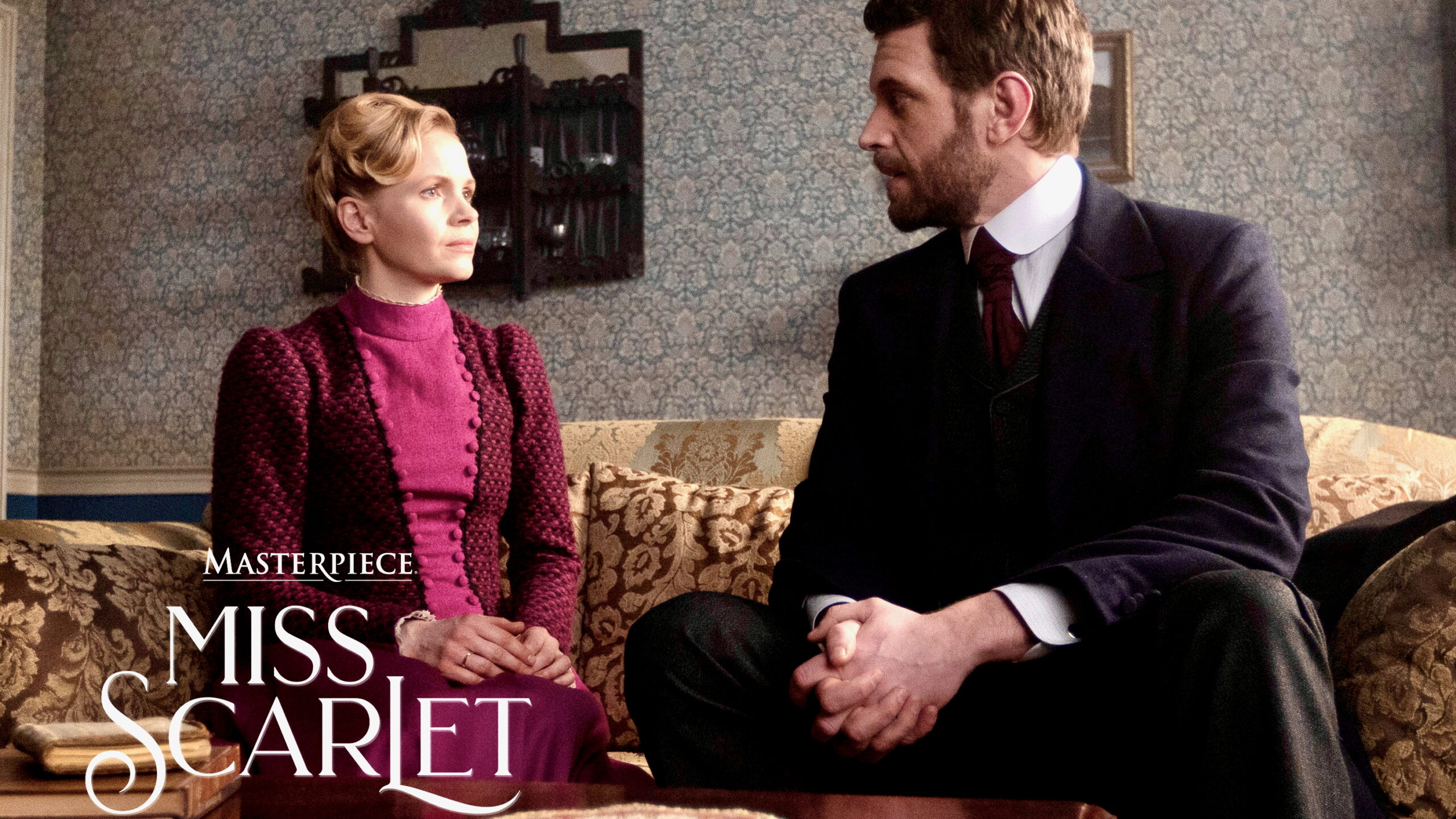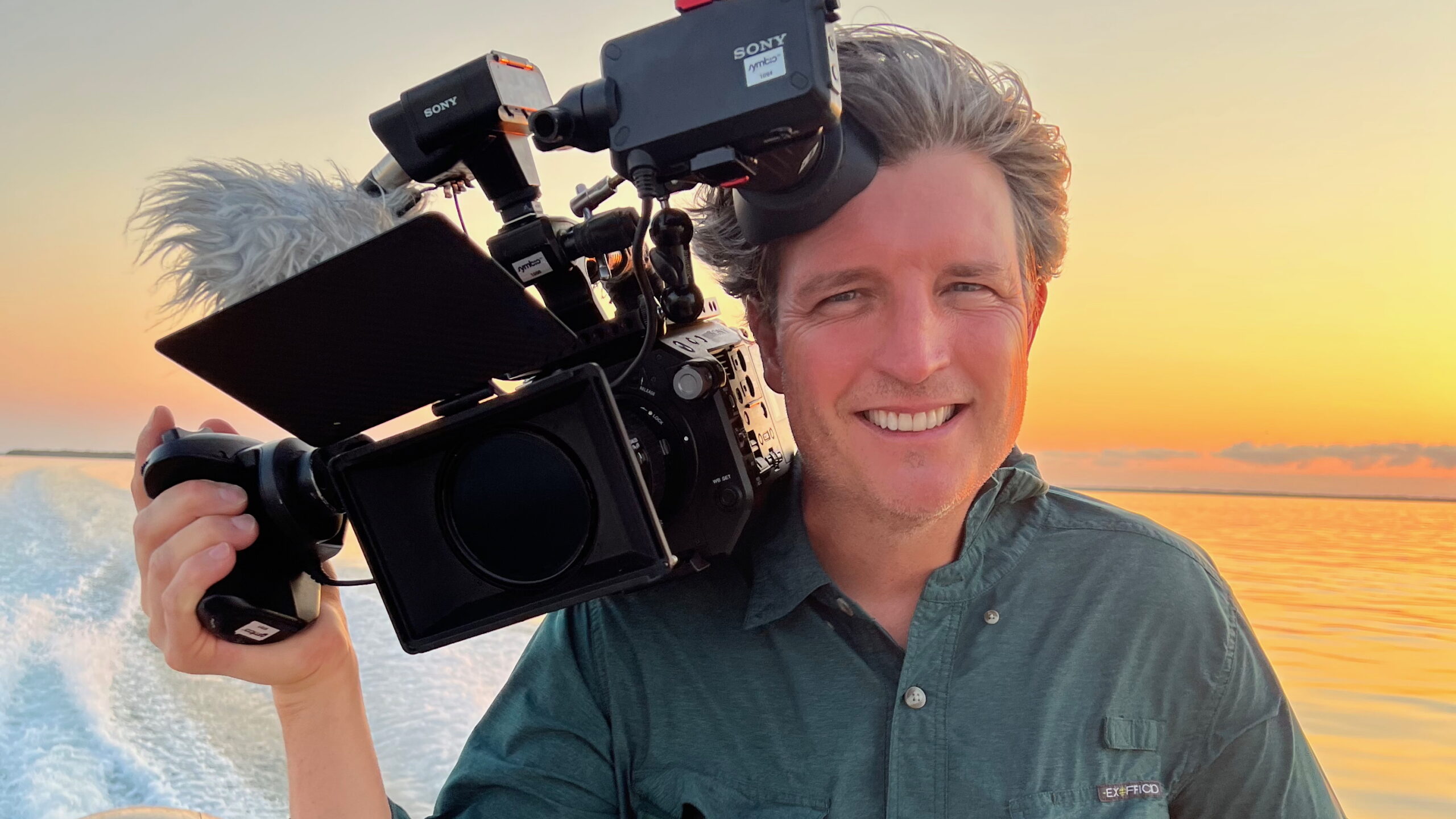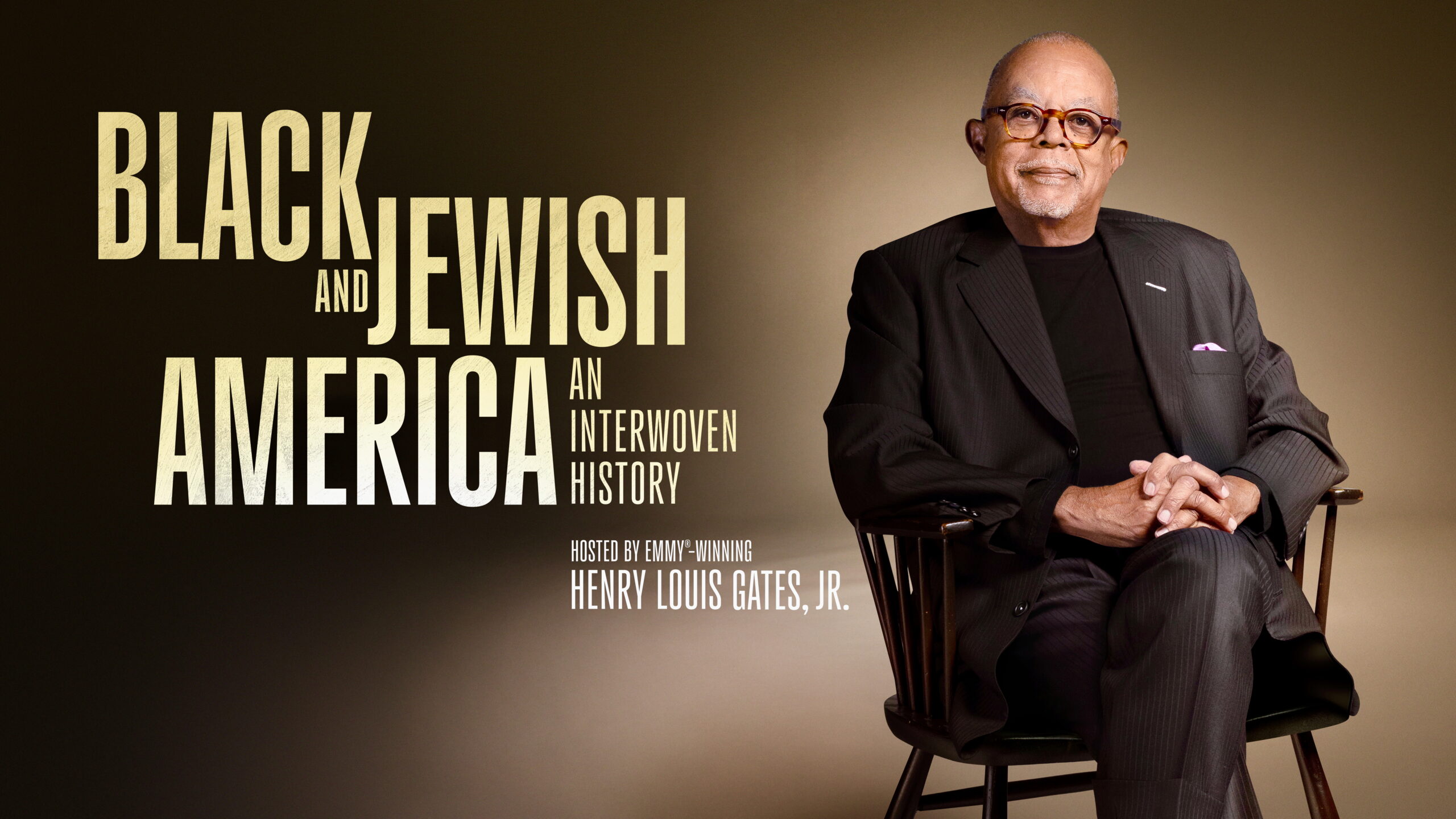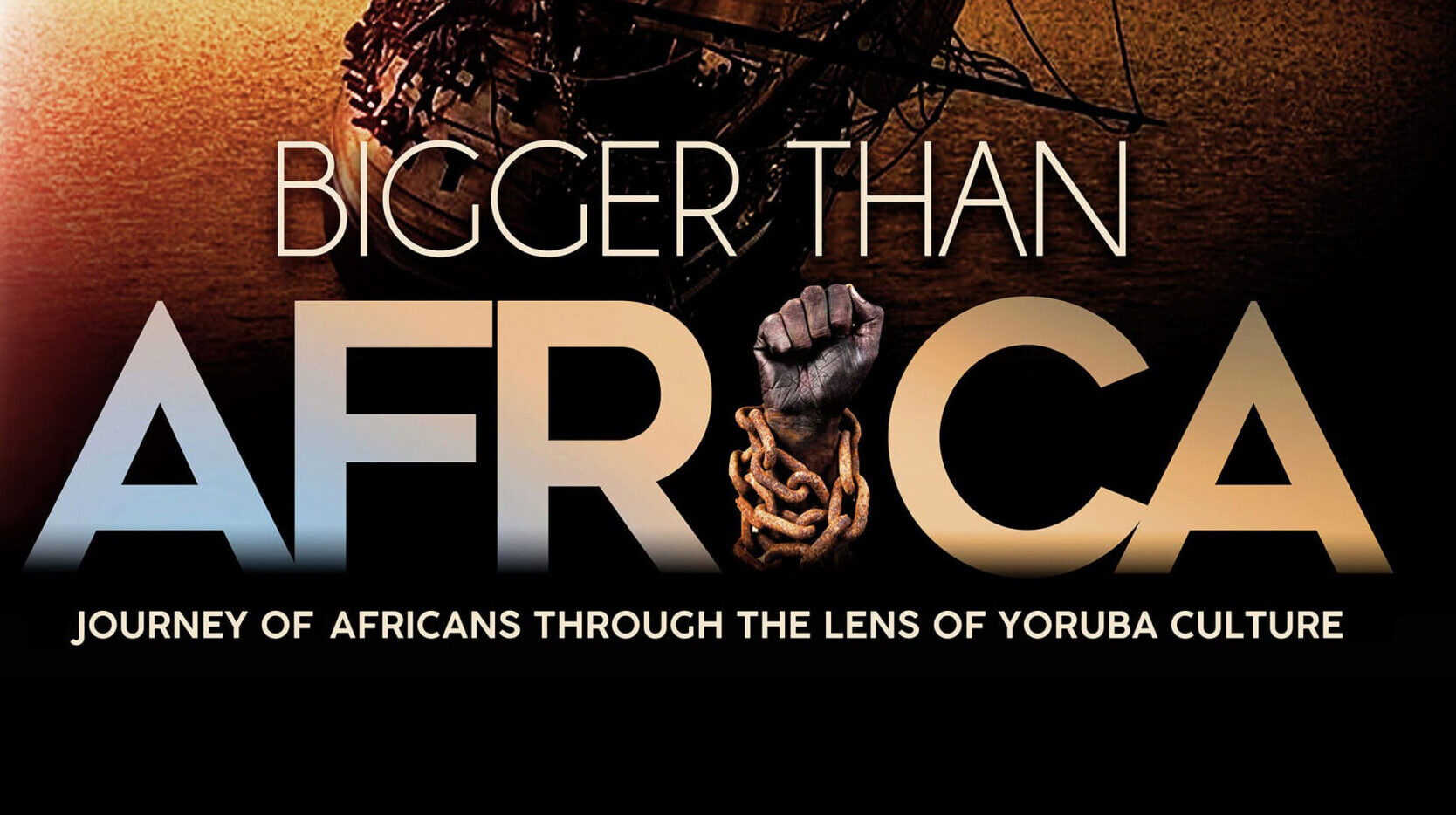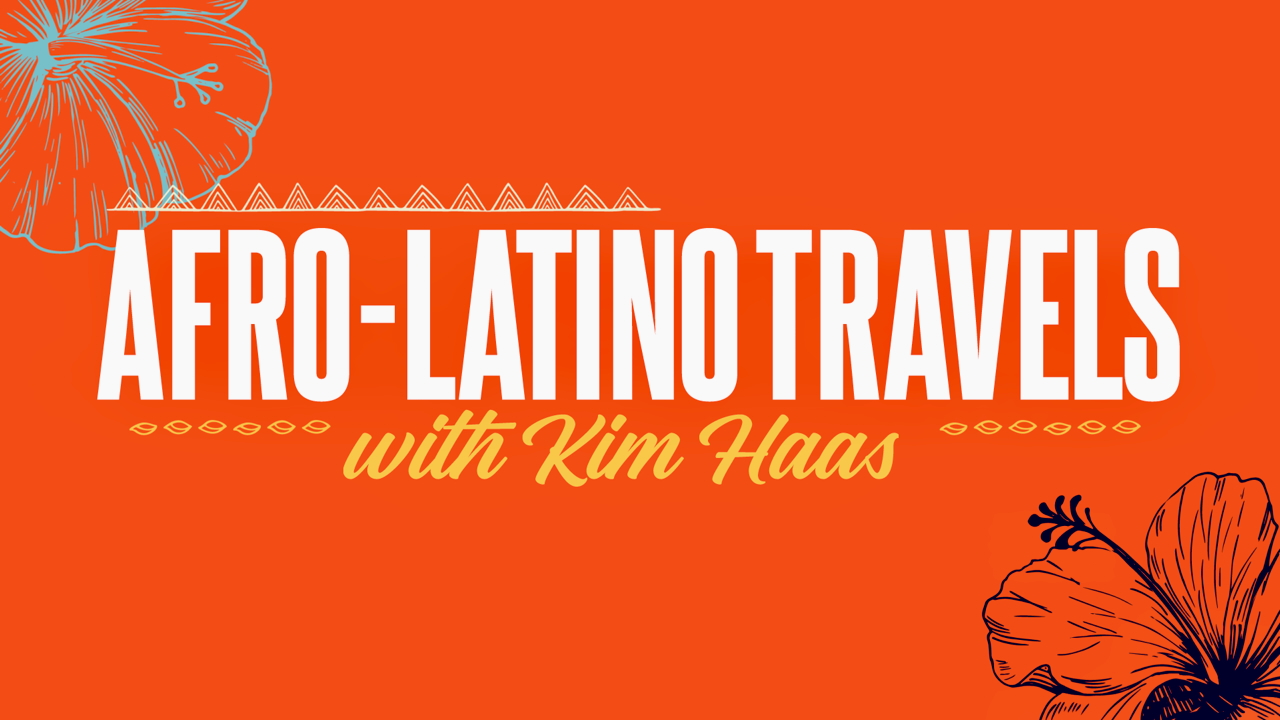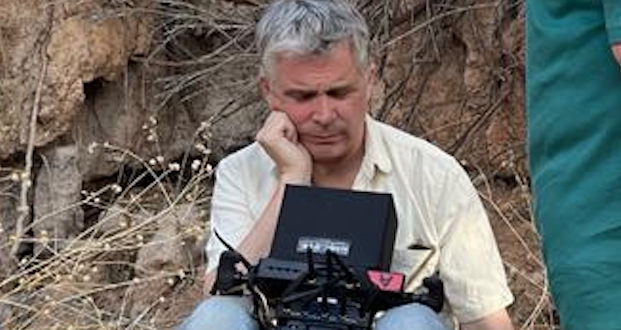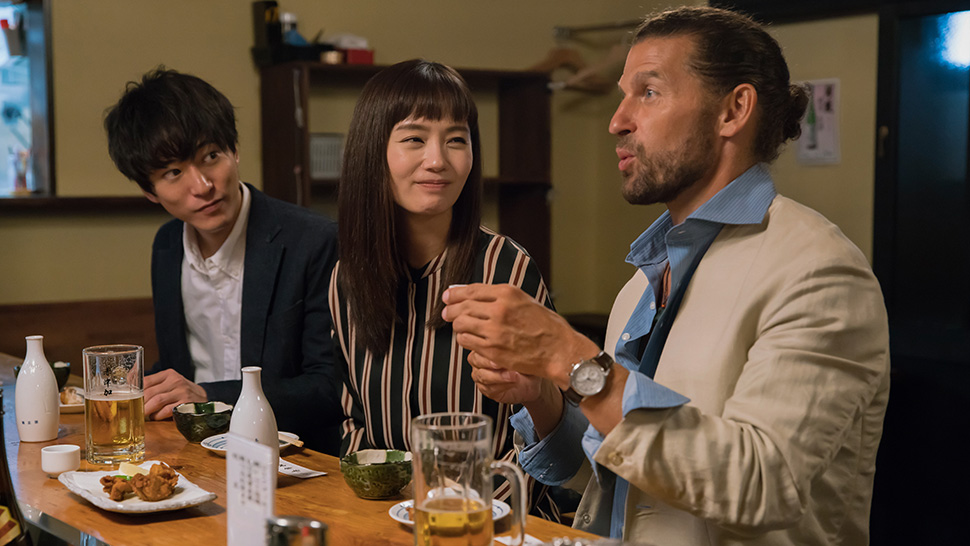Imagine the warmth of a kitchen filled with the aromas of Italy, where Chef Lidia Bastianich masterfully stirs up not only dishes but also memories, cultures, and connections. With her latest special, Lidia Celebrates America, just airing on KLCS Public Media over Thanksgiving and the new season of Lidia’s Kitchen airing this Fall, Lidia’s presence on our screens marks a milestone—26 years of sharing her passion for food with us. We caught up with this PBS icon to talk about her new projects, her reflections on food as a universal language, and how, like a painter with her brush, she creates beauty with her palette of ingredients. “I have my palette of food to paint this life positive,” she muses. Join us as we explore Lidia’s vision of a world brought together, one dish at a time.
Lidia, tell us about the November special and what motivated you to do another special? LB: I think it’s my 14th special; It’s my way of thanking America. I do my cooking show and that’s on everyday, but I’m an immigrant and I think that sometimes America is not appreciated, it’s maligned, whatever you want to call it. I said, “America is great. Look at me, look at the opportunity that I had, I was accepted.” So I talked to CPB [Corporation for Public Broadcasting] and I said, “I’d love to do one more special”, which we co-produced with GBH, “and it’s: going around America and appreciating different things; and I do it through food.”
We did it on the veterans, we did it on childhood education, we did it on lack of food; and this one is really about changemakers across America. Everybody says “Oh, America, there’s so much going on, no peace, no this.” There’s a lot of good people in America. And I went around to try to find some people that really do care about their neighbors, people that really do care about their culture, people that really do care about America as America is; and people that reflect that. What is wonderful about it is all these people are what America is – different cultures, different ethnicities. So I went around and looked for people that did something with food, that was conscious. So, anywhere from like Sean Sherman who is a native Indian up in Minnesota and he runs a restaurant that cooks the food of his tribe, and he encourages his people to grow, to continue to eat the food they were brought up with. He wants to bring it into America, because he says, “We are Americans, and Americans don’t know what our food is all about.” So that was wonderful. Or going to L.A. In L.A,. Nicole, this wonderful woman, she’s African-American, and she was raised in a poor neighborhood. And of course the problem with these neighborhoods is Whole Foods doesn’t come into those neighborhoods, so people really don’t have the diverse nutrition that they should have, or for that matter, gardens. So she started this organization and she does education about gardens; the neighbors could have a plot of land, you could grow enough food to feed you in season. But they go around to the stores, the producers with products that are maybe a day or two old, a little bruised a little bit on the outside, but still good, collects them and distributes them in less [resourced] neighborhoods and also opens the door and gives whatever vegetables she found that day. There was a line; people come and bring their bag with them and shop free of charge. Most of it is vegetables and fruits. I was there that day and they had zucchini, cabbage, and whatever. So I went and got one of my quick recipes that included those ingredients within the bag. But you know, these people watched me, a lot of them recognized me. So they’re longing I guess, for knowledge.
Where was it in L.A.?
Healthy Equity Initiative in Inglewood.
You must have a good research team, was it hard to find everyone?
We have a production team, I have GBH, which is the Boston PBS station, we get together. But in food, you hear about these great people. What was interesting. Also. was that people were concerned about the future of food – Will we have enough food? And about their environment. And there was a husband and wife that were raising crickets. Insects are full of protein, no fat. So they had these dried crickets. People go, “Oh my God, Lidia.” When I travel, I went down to Mexico they have, in the markets, mounds, and also in China or wherever. They use these for protein, I had chocolate-covered ants and eggs in Mexico.
Did you eat the crickets?
I ate the crickets, yeah sure in salads. The funny part is, “Lidia, how would you do with the crickets? How would you incorporate it?” I was thinking a little bit. So I made a pesto; I said, “Get me some basil, get me some parsley,” and I used the crickets instead of nuts. And the pesto came out delicious, we made a pasta. So they’re looking at how to insert this new protein.
Since we last spoke, you were filming in your backyard and then in your kitchen. In the new season, is that in your kitchen and in your backyard as well?
LB: It’s in my kitchen, and yes, you have clips because I have my garden in some of the things that we do discuss – vegetables and how you can grow it and how you can use it. But it is in my house and this one goes with the book, “From Our Family to Yours: Lidia’s Family Recipes.” And it’s all about recipes, because we’re 27 years now that I’m on PBS and people really relate to us, to my family. My mother passed away, but she lived with me, my grandkids grew up in my home. So whenever I was filming, I always brought my family around and I always brought them on the set and people loved them, got to know them. So this year, it’s based on all of the recipe. Simple, straightforward recipes that I cook at home.
Since we last spoke, you went to your childhood homeland. How was that experience?
LB: I can’t help but bring myself, they know I am an immigrant, I came here, I was 12 years old. I come from Italy, but it was on the border, northeast border. World War II, Italy lost the war and that part was given to the newly-formed communist Yugoslavia. So the Iron Curtain went up and we were caught behind the Iron Curtain. So, I had part of my formative years being ethnically one thing, but growing under different rules– not allowed to speak Italian, not allowed to practice religion on my own, and so on. Then, we escaped back to Italy, and there, before I moved on, because as immigrants they had changed our names in Yugoslavia, we ended up being in a refugee camp for two years. That’s so relevant in what’s happening today; I lived it. We waited for two years, I was 12 years old. I know what these kids feel and sense; I can’t but help to bring it in. It’s my story and people love knowing it, they want to know, they ask questions. So, whenever appropriate for me to explain something, like – “Where did you get this passion for cooking?” I myself don’t l know. I grew up in a setting under communism where food was scarce. I worked with my grandmother, I lived with my grandmother, she grew all the vegetables, she had chickens, we had goats, I milked the goats, we made cheese from it, we went to forage, collect potatoes. I did all of that as a child, grandma’s helper. And then, when we escaped back into Italy, I wasn’t aware because they didn’t tell children. If they would have caught us, they would have imprisoned us. Once we got on the other side in Italy, I realized that I didn’t say goodbye to my grandma, and I think that food remained my connector. I wanted grandma, grandma’s memory, grandma’s flavors, grandma’s aromas to be with me. And that’s why I cook; I love cooking. I think that’s what cooking does for a lot of people; It really gives them security.
I love when you tell those stories of your grandma and the courtyard and the chickens, but I didn’t realize you couldn’t tell people you were Italian, you couldn’t really be yourself because of the Iron Curtain.
LB: Yeah, you’re oppressed, there’s oppression, you’re not allowed. My mother was an elementary school teacher. When you grow up on a border like that, you speak more than one language. And my mother was a teacher, and yeah, they were followed, if you will, that’s what communism was all about. It’s oppression of who you really are and you have to be what they tell you to be.
At some point in recent episodes, you went to Italy too, which was fun. I loved that. Are there any more trips to Italy on future shows?
LB: Not in this season. I think that we have flashbacks, so I bring it in, but it’s not an official tour where I’m taking you here and there.
What’s your average day like now?
LB: (laughs) I just finished another book, this is 14, and it’s all about pasta. So today we had a meeting on the design of the book; that’s an hour in the morning with the whole team. Now you have this Zoom stuff here, and it’s so easy, you get to see everybody. And I have this interview. And (laughs) I was out collecting the flowers that are drying, because I collect the seeds just like my grandmother. I cut the flowers when they dry. I had marigolds, because marigolds are good for the garden, and then I had yellow and black margarita. So once they are drying out, I cut just the flower and I put them out in the sun and let them dry. When they’re really dry, then I collect the seeds and they’re good for next year. And I remember grandma doing this and me doing this with grandma. So you see, these are the things that are with me still. So I did that today. You’re in L.A., but here, fall is approaching.
Lidia, that would be a great episode where you teach us how to do that.
LB: I talk about it, I do, I share. When I do a show, it’s not scripted, we have the pointers, we’re going to do these three recipes. This is the key points you demo, because the show is 28 minutes. But in-between, I’ll talk with the producer, describe to them the techniques, and then things that come to mind that are relevant to what I’m doing; that’s when the stories come in. Those stories are not scripted; so, I do go back to moments like that. And I do go back to my garden, “This is what I did and this is what you do” and so on; I do give them those tips. But sometimes, what I’m attentive to is not to overwhelm the viewer. I want the viewer to be able to do what I do. I don’t want to be the one, “I can do it, just look at me.” So, I make sure that I relate things that they can do on their own and they can make happen.
Like everyone, growing up with you, I can’t get enough of you. What are you enjoying lately; what are you cooking and what’s on your mind lately?
LB: Covid came, so the restaurant situation, we had to close, we reopened. My kids came forth and I told them, because I opened my first restaurant in 1971, so 50-somewhat years of restaurants, I said, “Ok, I need to ease off on that.” And my kids, I told them, “What do you want? We can open some of them.” So, some of them they re-opened; I kind-of retired from the restaurants. They have the restaurants, I go to the restaurants. Like, I will go to Becco restaurant, our restaurant, and we’ll do like a tomato dinner. It’s the end of the season, so we make a whole dinner out of tomato and we talk about it, from the appetizer to the pasta, to the main course. Even dessert, like we do panna cotta with caramelized tomatoes. You take the plum tomatoes and you seed them and you skin them. Then you make some caramel sugar, put a little bit of orange juice, lemon juice and put the tomatoes, sauté them and you have a wonderful dressing, Could be for ice cream, could be for anything. I do things like that now; I do a lot of fundraising now. I just came back from Pittsburgh. I spoke at a convention for CPB (Corporation for Public Broadcasting) and NETA (National Educational Telecommunications Association), they had a meeting. Their convention was about new ideas of teaching and what is needed now more than ever, and I was the opening introductory speaker. I’ve been 27 years and I bring this positive attitude, which I feel very strongly. But that’s what they were looking at – how to really raise the morale and the spirit and the positivity in people watching public television. So I do things like this now – different events, fundraising for television. I just did a fundraiser for St. Francis Hospital, a hospital by me here for heart problems. Feeding local people that need food – I go actually to the event. How a chef works best – for me to cook, I can’t cook for that many people, what I can do is, I can gather donors. So let’s say that they do a lot with me, they invite me to speak and they invite 200, 300, 400 people. They pay the entrance fee, and that money goes towards the cause. So I do a lot of that.
You touched on a couple things that made me want to know more. Becco, for example, do you stay for dinner and say “hello” to visitors?
LB: Oh yeah, for this dinner, I will be there and eating. I stay there, I visit, even if we don’t have a dinner. For this dinner, I will be there and I will speak and I will talk from course to course and explain to them. But otherwise, I’ll go in, and sometimes even, I meet my friends, we have a bite and then I walk around and talk. First talk with the chefs, maybe they have their meeting, and then walk around and talk with the customers. Absolutely, I love that. These are the people that watch me.
You always seem positive and I always bring that up – that you have a positive outlook. Do you think that’s one of the keys to successful aging, to talk more about what keeps you positive?
LB: I was even telling my own kids – you are the ones that can make yourself or change yourself; you are in charge. And negative sentiments like hate or anger, those are sentiments that you don’t want to harbor, they only hurt you. You can’t be hateful towards somebody because you only hurt yourself. You have to come to terms with whatever it is, address it and be positive. In my life, as a young kid, I went through a bit in the camps for two years; being closed in, not being able to go out and sleeping all
together in this big room. Then, coming here to America, we had nobody here. The Catholic charities brought us here and they found a home for us, they found a job for us. I can’t help but know, I know, that there is a solution if you have a positive approach. If you make the best, you go ahead and think positive, a solution is going to come. Not always do you get what you want, you have to be happy, contented, and make the best of what you have. But you have to have a positive attitude, and food is positive. A lot of times, we hear, again, food is the cause of this sickness, food is this, food is that. But look at it the other way – food as medicine, this is all positive. Even food – turn it around, make it positive. And food is positive, when you give somebody food, you give emotion, you give love, you want to nurture that person. So I have a great communicator, my communicator is food, and it’s positive. Even if people are not feeling good, you invite them to a table, you nurture them, you will change the mood, or the sentiments, or whatever. Like the painters have their palette, I have my palette of food to paint this life positive.
You were talking about cooking with your chefs, what’s a dish you’re enjoying now?
LB: Cook seasonally all the time, so stay with the season. I just collected the eggplants and tomatoes out of my garden. So peppers, eggplant, tomatoes; I love vegetables. I love fruit, I love fish. But I would say that for me, vegetables are so, so versatile, I can do so much with them. I can make pasta, I can make risotto, I can make a soup. Now, I’m in season, I’m looking forward to the mushrooms. I go foraging, I love foraging. I go in the park, in the big parks here, and sometimes to go in the woods to forage. You to have boots or sneakers and bags to put the mushrooms in. I said, “If anybody ever recognizes me and takes a picture, it’s going to be ‘Lidia the bag lady,’” (laughs) because sometimes I walk in the local parks, the big parks, and I look for mushrooms.
In Queens or Manhattan?
LB: In Queens, I go out towards the Island.
Is there anything you’d like to add for our readers?
LB: The wonderful people that I meet along the way…my connector is food. Food connects me easily. I easily speak with food and connect with food. I would encourage people to cook, cook for themselves, cook for their friends. [Something] simple, it doesn’t need to be a lot, and gather around the table. The table is the most beautiful place in this society that we are sometimes so divided. The table, with some simple food, unites us.
Watch Lidia’s Kitchen Saturday afternoons at 2:30 PM on KLCS. Visit klcs.org/schedule for the full broadcast schedule. Or watch on-demand on KLCS|Passport.
You can keep up with Lidia and see her recipe of the week, or get helpful cooking tips on her website (lidiasitaly.com), or follow her social media; she’s on Instagram, Facebook and YouTube.

